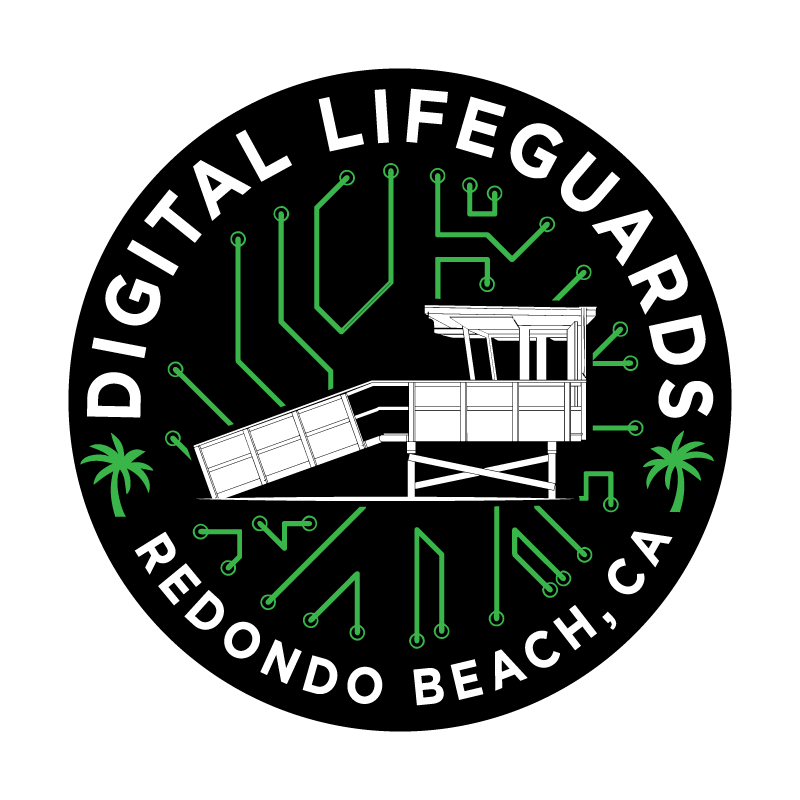by Garth Meyer
A new grassroots program from a Google engineer to help Redondo Beach parents navigate kids and the online/smartphones world is underway, it’s name stating its mission: “Digital Lifeguards.”
The idea stemmed from last May’s Redondo Beach Education Foundation gala, when a man named Sumeet Sharma bid on a lunch with the district superintendent.
“I did not bid for the lunch, that was my wife,” Sharma said.
She won, and he accompanied her to the meal during the summer with Dr. Nicole Westley. He told her that he had since had an idea he would like to run by her: informal talks for parents on how to protect kids online.
“This was his brainchild, and I thought it was a great idea,” Wesley said.
Sharma works in Google cybersecurity in Playa Del Rey.
Supt. Wesley connected him with Amy Huh, PTA president. Sharma’s subsequent series of “Digital Lifeguards” Zoom meetings – set to begin before Christmas – will be in addition to what the district already does with its “Screenagers” film showings, Cybercop at the high school, etc.
A flyer about Sharma’s project is now being circulated on the PTA’s online newsletter with a Q.R. code for parents to express interest.
“I am excited about this opportunity for our parents and think it will be a valuable resource for them to learn all they need to know about the online (space), especially if they are giving devices such as a cellphone to their children,” Wesley said.
The “Digital Lifeguards” concept sparked when Sharma’s 13-year-old son made a point that his friends’ screen time rules were significantly more relaxed than his own.
“While I limit my son’s device usage to one hour a day and 90 minutes on non-school days across all devices, his friends were on their phones for four or five hours a day,” Sharma said. “In some cases, that doesn’t even include time spent on gaming consoles, YouTube or Netflix. This stark contrast made me realize the urgent need for coordination among parents. Without a unified approach, it’s impossible to enforce any kind of balance with my own children. We don’t live in a vacuum, and it became clear that the community needs to come together.”
Sharma’s son is now an 8th-grader at Parras Middle School. His daughter is in fourth grade at Beryl Elementary.
The boy has a smartphone, and the girl a phone without a SIM card.
“The SIM card I’m trying to delay,” Sharma said. “Just trying to control these things. It’s a challenge.”
The Sharma family moved to Redondo Beach two years ago from Singapore. Before that, they lived in San Francisco for 13 years.
Sumeet’s title with Google is head of business development for Android Security and Privacy.
He cited NYU Professor Jonathan Haidt’s book, “The Anxious Generation” as a key reference for “Digital Lifeguards.”
“‘Today’s children are overprotected in the real world and underprotected in the online world,’ that is from Haidt. Inspired by this, I started Digital Lifeguards rooted in three fundamental principles: (1) Don’t be an ostrich! Nobody is immune, so let’s be proactive. (2) Foster a culture where children feel comfortable to communicate without fear of judgment. (3) Stay informed. Threats are evolving and no one has all the answers, so let’s commit to learning and working together.”
Sharma’s plan is to hold a “Digital Lifeguards” Zoom session once per month, each focused on a different topic, of which he suggests there will be no shortage.
“Deepfakes, GenAI-driven emerging threats are coming around the corner,” Sharma said. “I feel like we should have started this yesterday.”
The following is part of a written interview with Sharma Dec. 4:
How do you compare “Digital Lifeguards” with existing programs like “Screenagers” and “Cybercop”?
They are all complementary, and the digital challenges are too formidable for us to tackle alone—we need all the support we can get. To be honest, our efforts are far from enough on their own. I plan to collaborate with each of these programs to amplify the benefits for Redondo Beach families. I firmly believe that by working together, we can harness the strengths of each program to maximize our impact and deliver greater value to our community. This collaboration will enable a more holistic and integrated approach, combining specialized resources and expertise to address the challenges we face.
Supt. Wesley mentioned that one part of this will be how to set up restrictions on devices, is that right?
Yes! families often struggle with device settings and app restrictions so we definitely plan to help them with that. These technologies are built by some of the brightest minds in the world; with every click, recommendation, and user interface element engineered to maximize content consumption.
Parents will vote on which topics to prioritize, some of the (potential) topics we’ve discussed are: device and app settings, device addiction, cyberbullying and online harassment, social media, phishing, sextortion, etc. ER










